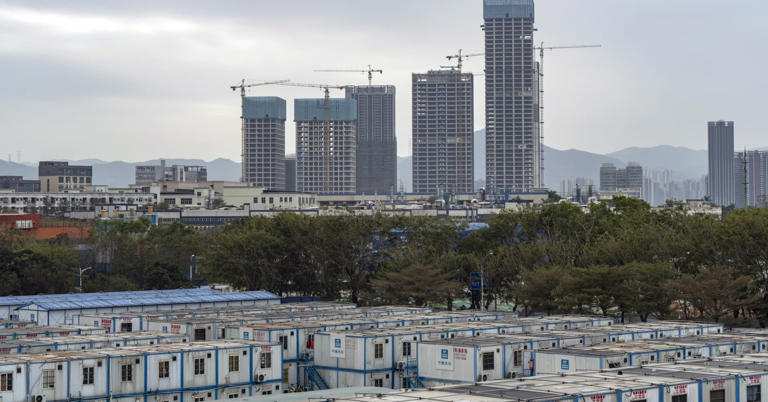Key Takeaways:
- Ni Hong, Minister of Housing and Urban-Rural Development, stressed the importance of bankruptcy or restructuring for seriously insolvent real estate companies.
- His remarks were made during a press conference held alongside China’s annual parliamentary meetings.
- Major real estate developers like Evergrande and Country Garden have experienced debt defaults.
- Declining new home sales have raised concerns about future business prospects in the sector.
Chinese authorities have signaled that struggling real estate developers will not receive a significant bailout, with warnings issued that those who “harm the interests of the masses” will face punishment. Ni Hong, Minister of Housing and Urban-Rural Development, emphasized the need for bankruptcy or restructuring for severely insolvent real estate companies. He stated that companies unable to operate effectively should either go bankrupt or undergo restructuring in accordance with legal and market principles. Additionally, Ni warned that those engaging in actions detrimental to the public interest would be thoroughly investigated and punished according to the law. These remarks were made during a press conference held alongside China’s annual parliamentary meetings. The statements come amidst financial challenges for major real estate developers like Evergrande and Country Garden, who have defaulted on debt payments. Plunging new home sales have further exacerbated concerns about the future viability of real estate businesses in China.
In 2020, Beijing initiated a crackdown on developers’ heavy reliance on debt for expansion, aiming to curb property market speculation. However, this led to many developers facing financial difficulties and being unable to complete apartment buildings, which are typically sold to buyers before construction completion. Consequently, some buyers boycotted mortgage payments.
Although authorities have introduced measures to provide financing to select developers, the national stance on reducing the real estate sector’s role in the economy remains unchanged.
This year’s annual government gathering has underscored the emphasis on investing in and bolstering high-end manufacturing capabilities, with less focus on the massive real estate sector. Real estate was scarcely discussed during an economy-focused press conference last week, while Ni’s comments were made during a meeting concentrating on “people’s livelihoods.”
Ni highlighted authorities’ commitment to promoting housing sales and affordable housing development, stressing the importance of long-term considerations.
Changes in the property sector have significant implications for China’s overall economy. Once constituting approximately 25% of China’s GDP, including related sectors like construction, property now accounts for around 22% of the economy according to UBS analysts’ estimates from late last year.
During last week’s government work report, Premier Li Qiang outlined plans for the year ahead, including a faster move towards fostering a new development model for real estate. This includes scaling up the construction and supply of government-subsidized housing and enhancing commodity housing systems to meet diverse housing needs.
